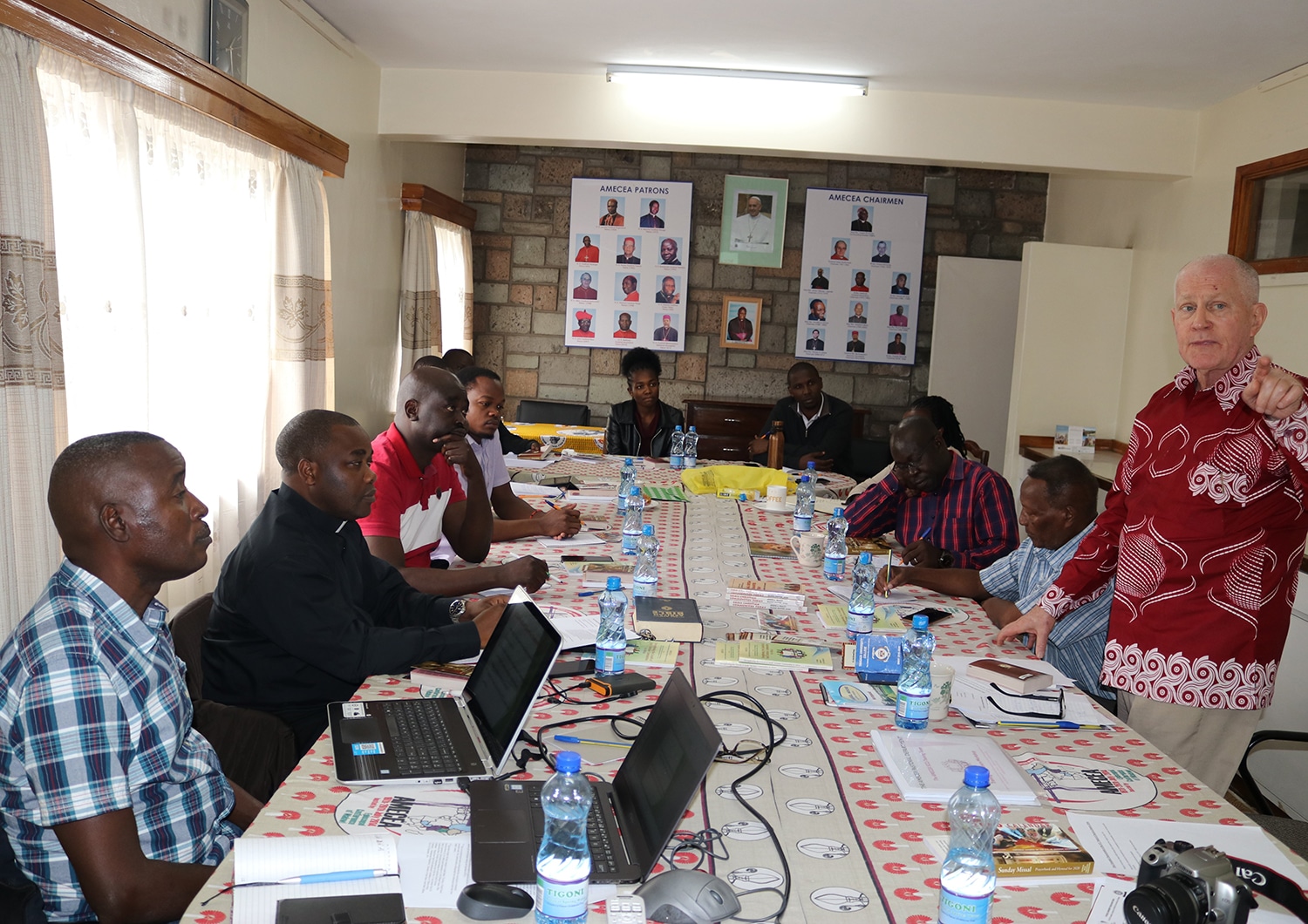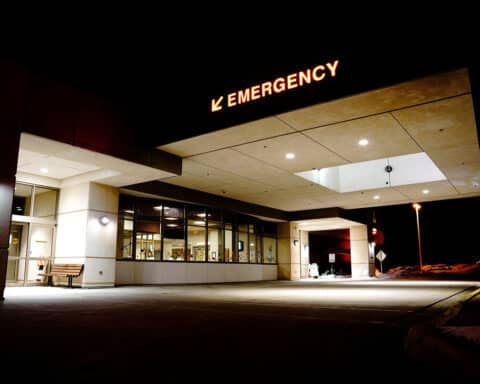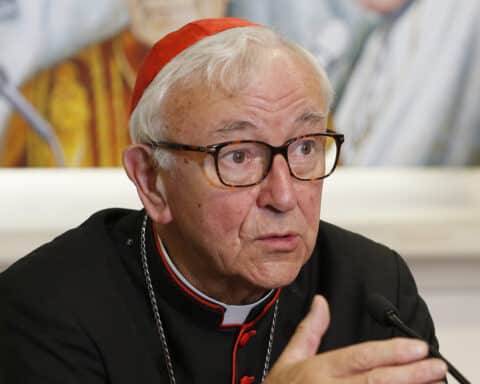(OSV News) — Maryknoll Father Joseph Healey routinely asks questions and his presentation to the 400 students in grades pre-K through 8 at St. Philip the Apostle Preparatory Academy in Clifton, New Jersey, was no different. Students eagerly shouted out their answers to the veteran missionary’s questions: “What’s your favorite animal?” “What’s the fastest animal?” “What do you do to help the environment?”
“You have to get people engaged, you have to meet them where they’re at,” he told OSV News.
The priest’s presentation to students Jan. 29, during Catholic Schools Week, was on the theme of mission to help them understand how to be missionary disciples.
“Each of us is called as a disciple — that we are to listen to God’s word and then respond with practical action,” Father Healey said. He compared the situation to how the children “knew of the importance of planting trees and many were already doing so.”
Hungry for more
Born in Detroit in 1938, Father Healey was ordained a priest for the Maryknoll Fathers and Brothers in 1966 and spent more than 50 years in East Africa, predominantly focused on forming what are called “small Christian communities,” or SCCs. Having formed several thousand — in person and over the internet — he is sought out as an expert in what it means to answer Jesus’ call as a disciple and to be sent forth as an apostle.
Now back in the U.S., he passionately continues to spread the essential role of SCCs in the Church’s evangelizing mission. SCCs (also known as “basic Christian communities”) have also gained the attention of the global Synod of Bishops, which will continue discerning how they can become a more intentional part of a synodal, evangelizing church when the synod reconvenes in Rome this October.
Father Healey particularly enjoys working with young adults, leading several groups both in Africa and in the U.S. in person and online. He asks them, “What do you want to talk about?”
“Young adults are concerned about relationship issues, sexuality, justice and peace,” he said. “Food — eating a meal together is a priority — in a small intimate group of no more than 15 people.”
Father Healey developed a Facebook page — The Young Seekers — to help young people develop a personal relationship with one another, grow their relationship with the Lord, network them through SCCs, support the marginalized in local communities and help young people develop a sense of pride. Participants come from Indonesia, Kenya, Pakistan, Tanzania, Uganda and the United States.
He asks adults a different question, “Do you want to be more than just a Sunday Catholic?” And he usually gets some form of a “yes” response.
“People are hungry and seeking ‘the more,'” Father Healey explained. “They’re looking for God’s action and meaning in their daily lives, and you have to meet them where they’re at to address their needs.”
Meeting in community
For him, the plan for SCCs is simple and scriptural. He cited the Road to Emmaus (cf. Lk 24:13-35) where two dismayed disciples left Jerusalem following the crucifixion and unknowingly met on the road the risen Jesus, who broke open the Scriptures foretelling his mission and finally made himself known in the breaking of the bread. The disciples immediately returned to Jerusalem to proclaim the good news of Jesus’ resurrection.
“It’s spelled out in the Acts of the Apostles,” Father Healey continued. “They met in homes, devoted to the teachings of the Apostles, the communal life, the breaking of the bread and prayers. This is what they do in Africa — small family groups that meet weekly to reflect on the upcoming Sunday readings, share life and support one another in their difficulties and celebrations and they pray. For them, SCCs are not a project or program, they are a way of life.”
SCCs aren’t new in America. Many formed as a result of Renew groups, or Christ Renews His Parish groups, or as a follow-up to the completion of the sacraments of initiation.
Once again, the SCC format is simple: A small gathering of people meet weekly usually in homes for a couple of hours to listen to the Sunday readings, share what they hear God saying to them and commit to acting upon it. They pray, share life and then when they bring it all to Sunday Mass and Eucharist, their relationships with one another, the larger community and Our Lord deepen and are more meaningful.
There are SCCs of many different configurations based on something people share in common: such as young moms groups, married couple groups, youth groups, or even by profession, such as groups of nurses or athletes. “The Chosen” TV drama about the life of Jesus has also generated many groups. And sometimes, the group’s commonality might also be the simple desire to be more than a Sunday Catholic.
The National Eucharistic Congress
Father Healey hopes the July 17-21 National Eucharistic Congress in Indianapolis will include the opportunity for participants to gather in small groups to share their faith, to discuss what the Eucharist means to them and the community.
“There is a Eucharistic famine in Africa,” he explained, “where many communities will go for as long as a year without a priest to celebrate Mass. The pinnacle of our Catholic faith is absent.”
The entire world experienced this famine in the COVID-19 lockdown. And while many Catholics have not returned to Sunday Mass, Father Healey believes SCCs can help the National Eucharistic Revival lead them back to the Eucharist, the source and summit of the Christian life.
“We must ask,” Father Healey said, “what is the Holy Spirit saying to us today about the role of small Christian communities and the Eucharistic Revival?”





